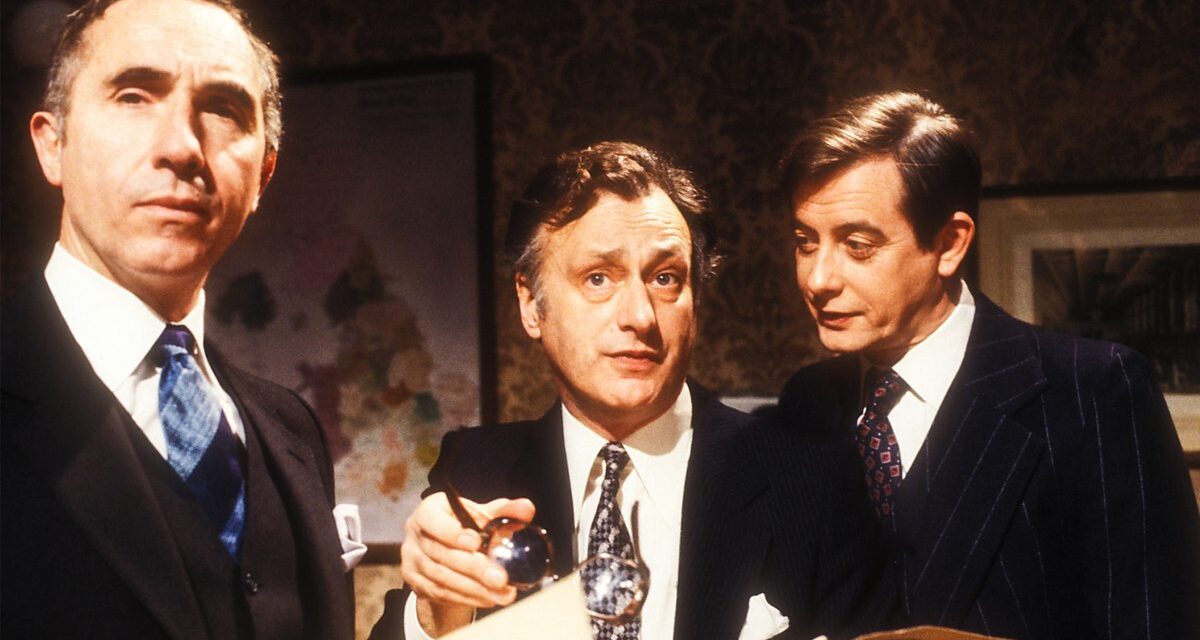Yes Minister: An Iconic British Political Satire
Introduction
As one of the most brilliant British sitcoms of the modern era, Yes Minister became a cultural phenomenon for its biting satire and commentary on government bureaucracy. Originally premiering on BBC2 in 1980, the show captured audiences with its witty writing and superb performances that peeled back the absurdities and hypocrisies underlying politics and public service. Creators Sir Antony Jay and Jonathan Lynn drew upon their real-world experiences in media and politics to pen the sitcom, bringing incisive and humorous takes on the workings of power to the small screen. Yes Minister ran for four years until 1984, earning legions of fans through its the masterful fusion of political satire and relatable humour.

Premise, Format and Storytelling Style
Centered around fictional MP and Minister James Hacker, each 30-minute episode of Yes Minister saw Hacker confronting challenges of policymaking, media spin, and navigating the labyrinth of bureaucracy and red tape. Plots would see the well-meaning Hacker wish to enact promised reforms, only to face resistance or subversion from the civil service staffed by careerist mandarins. Much verbal sparring and witty repartee would ensue between Hacker and Sir Humphrey Appleby, the eternally crafty Permanent Secretary.
With the traditional British sitcom structure, the show’s basic premise provided engaging fodder for comedic scenarios that deftly unpacked the frustrating intricacies of governance. The razor-sharp writing balanced satirical themes with relatable humor and fully-realized characters. While clearly satirizing the “smoke and mirrors” duplicity underlying politics, the show’s ultimate ethos was humanistic – conveying that public service should be more than cynical games of power. This fusion of satire and pathos gave Yes Minister an enduring crossover appeal.
Memorable Characters and Cast
Yes Minister derived much of its genius from its exemplary cast and the chemistry between their characters:
- Paul Eddington portrayed the Rt Hon James Hacker with an affable charm underscored with frazzled anxiety as he tackled each political test. Hacker gave a human face to the political class.
- Nigel Hawthorne proved a revelation as Sir Humphrey Appleby, permanent secretary of the fictional Department of Administrative Affairs. Hawthorne’s droll wit and delivery as the deadpan Humphrey turned obfuscation into a comedic art form.
- Derek Fowlds provided comic relief as Bernard Woolley, Hacker’s exasperated principal private secretary perpetually caught between the Minister and civil service.
The core trio created an exquisite comedic chemistry between their opposing personalities and agendas. Supporting characters like Hacker’s domineering wife Annie and Sir Arnold Robinson, Cabinet Secretary, also left indelible marks. The stellar ensemble cast made the characters eminently relatable despite the absurd situations.
Cultural Significance and Critical Acclaim
Upon debuting, Yes Minister received effusive praise from critics and audiences for its piercing wit and alarmingly realistic take on the workings of government. The show was showered with awards including multiple BAFTAs and BBC Comedy Awards over its run. Phrases like “Yes Minister” entered the lexicon as shorthand for bureaucrats placating politicians with doublespeak.
Many within the Thatcher government found the show scarily accurate, with reports that policymakers would learn from the fictional scenarios. Margaret Thatcher herself was said to be a fan. Yet mainstream audiences also deeply connected with the characters; despite the erudite satire, the human stories made the political personal. This fusion of satire and resonance gave Yes Minister enduring crossover appeal that bridged class divides.
Legacy as Political Comedy Trailblazer
In the British sitcom pantheon, few series match Yes Minister for its cultural footprint. Along with its sequel Yes, Prime Minister, the show pioneered a new gold standard for incisive political comedy. Directly inspiring later shows like The Thick of It, Yes Minister normalizing the idea of satirizing governance on primetime television.
Its legacy is rooted in its societal influence and timeless perspectives on power, rarely equaled in subsequent political satires. By cloaking its shrewd commentary in hilarity, Yes Minister proved the power of satire to speak truth to power. Over 30 years since its finale, the show’s wisdom and humanism still resonate amidst modern political chaos.
An Enduring Comedy Classic
Yes Minister remains one of Britain’s most iconic and beloved sitcoms. The stellar writing, acting and directing created a show that was both hilarious and thought-provoking. It endures as a comedy masterpiece that entertained as much as it educated about politics’ absurdities and profundities. Yes Minister captured the paradoxes of public service – well-meaning people caught in webs of hypocrisy – earning its status as a cultural touchstone that humanised governance. Its legacy as insightful satire coupled with empathy is timeless.












